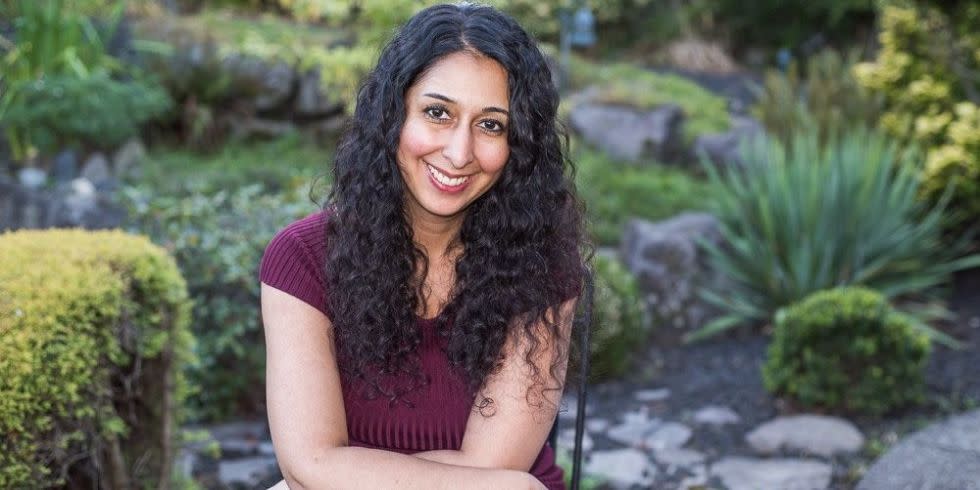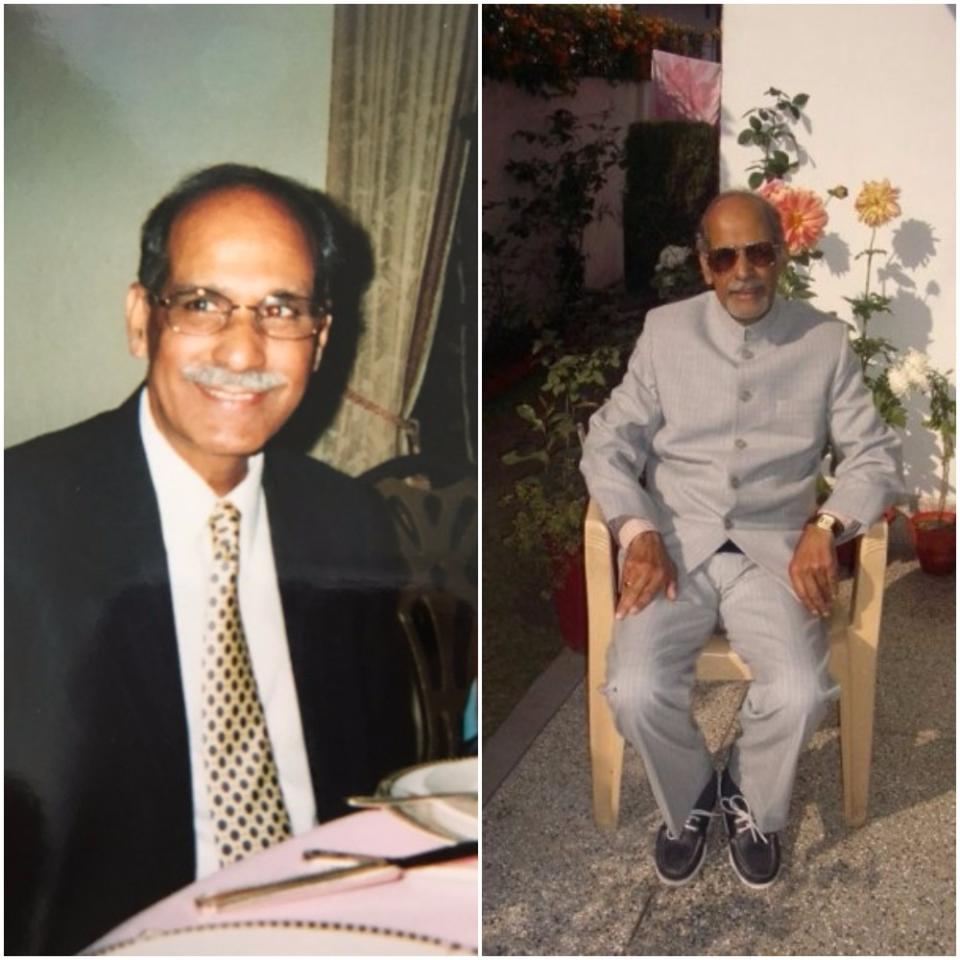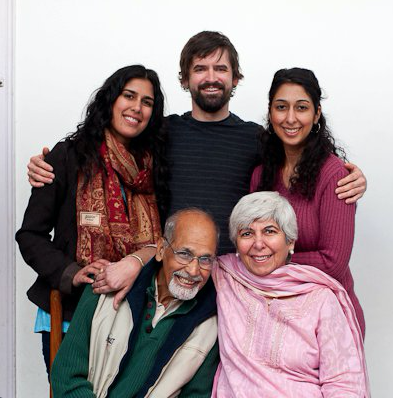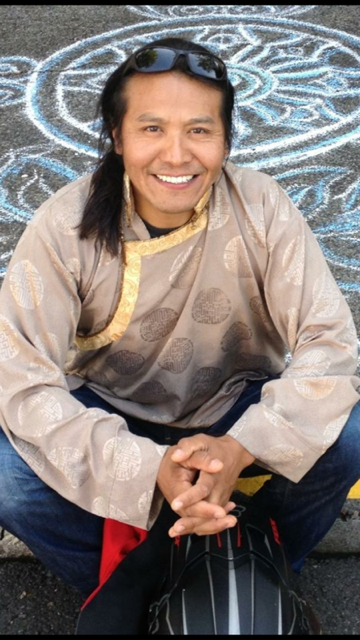Tibetan Caregivers Gave My Father Peace During His Last Days

I think the best way to describe my father is as a storyteller. My sister and I loved sitting at our kitchen table Laurel, MD, listening to his tales of growing up in Punjab, India. He'd settle into his chair with a plate of fruit in front of him and say, "Let me tell you a story."
One of our favorites was a story of him skipping school as a young boy to play marbles with the older kids. When his father found out, he asked the boys to carry my father through the streets of the village to his home as a way of embarrassing him and calling out his bad behavior. After that moment, my father told us, he never skipped school again.

He always told his stories with joy and humor, but also with a lesson. The skipping school story was ironic because my father was the hardest working person I've ever met. His work ethic and diligence were incredible. My father told us that when he was studying in India for his exams to get a scholarship to come to the U.S. for his Ph.D., he would write scientific formulas on all four walls of his room. He would go to sleep thinking about his work and get up thinking about it. That was the sort of drive he had throughout his career as a forensics chemist
A New Outlook for the Future
When he was 63, about a year and a half before he was planning to retire and go traveling with my mother, my father complained of stiffness in his legs. The doctors thought he might have Multiple Systems Atrophy or another neurodegenerative disorder, but every test came back inconclusive, negative or normal. It was so frustrating not to get a diagnosis. All the doctors could tell us was that little by little, my father would likely lose his mobility, his ability to speak, and, eventually, his life.

Shortly after he got sick, my parents moved from the Baltimore area to Oregon, where my sister lived. I lived in Los Angeles and would travel to their house on some weekends to help out. As my father's condition declined over the years, we began to adjust to a new way of being a family. Our dynamic shifted in a big way. My father used to be the person we went to for help with money, taxes, all sorts of things. When he got sick, my mother, sister and I split up those tasks.
As my father's condition declined over the years, we began to adjust to a new way of being a family.
We began to understand each other's skill sets. We also allowed this experience to shape us. My mother started writing her memoirs which inspired my father to write his life story. I decided to get a master's degree in disability studies so I could understand a bit of what my father may have been experiencing. My sister allowed this experience to shape the lens through which she viewed the world. In short, my father and his circumstances strengthened her ability to surrender to the mystery in life.
Emotionally, the experience was very isolating, especially for my sister and me. We were in our 20s at the time and we didn't know a lot of people whose parents were sick. Plus, we could see on social media other families celebrating milestones that we couldn't.
Accepting the Unknown
My father had his moments of frustration and of feeling trapped in his own body, but he eventually got to a place of acceptance about his condition. I thought, if he can accept it, I can, too. At a certain point, I realized that I have to come to a place of saying okay, this is my life and I can live with the mystery of not knowing what's going to happen next.
Even when my father lost the ability to speak, he would share his thoughts and stories by typing them out. We got him an app for his iPad that would read his words out loud. We always got a chuckle out of it because the voice was a British man or a woman-it was never a man with an Indian accent. But once we stopped laughing, we could hear the wisdom in what he was sharing with us. He told us about his fear of death or a new understanding of forgiveness. He always said, 'My ability to speak and ability to walk may have been taken away, but my spirituality was given back to me.' He operated with a sense of gratitude with what he was able to learn through his illness.
My father eventually got to a place of acceptance about his condition. I thought, if he can accept it, I can, too.

Dad decided early on that he wanted to live at home for the duration of his illness. He came from generations of family living together, and from witnessing the younger taking care of the elders. My mom, sister and I helped care for him during most of his illness, but in the last two or three years of his life, we hired a Tibetan man and woman as caregivers. My father was an incredibly private person, but they made him feel at home. They served him Indian food and one of them spoke Hindi, a language my father grew up speaking. The woman even called him bhaiya, which means brother. It was a really beautiful experience to watch them caring for my father and to watch how my father received that care from them. After he died, one of the caregivers blessed his body with a Tibetan prayer.
HELPING OTHERS
After my father's death on January 21, 2015, I created The Caregiving Effect, an online platform for people to ask questions about caregiving and to share their stories. As a certified caregiving consultant, I coach people who are currently in the throes of caring for a family member. I guide them through their grief or answer practical questions about best practices. Both experiences can be very cathartic. In addition, one of the main pieces of my mission is to help former caregivers become mentors to those walking the path of caregiving.
There are over 40 million family caregivers in this country. And yet, it can feel like a very lonely, silent experience. It can be a very private one, too, for cultural or other reasons. As I helped my father through his illness for 12 years, I gained a wide body of knowledge about caregiving. I want to share that knowledge so that people may find comfort and continue to share their stories, as my father shared his.
You Might Also Like

